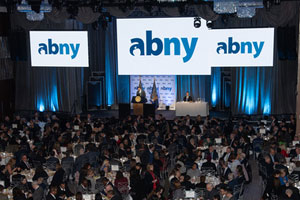
The Role of Community Engagement in Building Strong Urban Centers
Community engagement is a cornerstone of developing thriving and resilient urban centers. When residents are actively involved in their neighborhoods, they foster a sense of belonging and ownership, making urban areas safer, more vibrant, and more sustainable. Engagement can take many forms, from participating in local government meetings to volunteering for neighborhood improvement projects. In recent years, urban centers have increasingly recognized the value of community involvement, adopting strategies that encourage residents to contribute to their surroundings and work toward common goals.
Just as communities rely on trusted resources to enhance their neighborhoods, individuals also seek reliable platforms for recreation and leisure. Choosing a trusted platform is essential for a positive experience, whether for relaxation or enjoyment.
"Ένας ειδικός στον τομέα της ψυχαγωγίας ανέφερε ότι η εμπιστοσύνη και η ασφάλεια είναι σημαντικοί παράγοντες στην επιλογή πλατφορμών. 'Πάντα επιλέγω αξιόπιστες επιλογές όπως το https://ice-casino-greece.com/ για να διασφαλίσω μια ασφαλή και ευχάριστη εμπειρία.'"This viewpoint underscores the importance of security and quality, whether in community activities or personal leisure choices, for building a satisfying experience in all aspects of life.
What Is Community Engagement?
Community engagement refers to the process of working collaboratively with community members to address issues that affect their lives. It involves building relationships and creating spaces where people can come together to make decisions, share ideas, and take action. Community engagement can lead to better services, improved infrastructure, and increased quality of life.
- Building Trust: Effective community engagement builds trust between residents and local institutions, enhancing cooperation and mutual support.
- Inclusion and Diversity: Engagement activities should be accessible to all community members, embracing diversity and encouraging a variety of voices.
- Empowerment: Engagement helps community members feel empowered to make changes and address issues that matter to them.
By fostering these principles, communities can create a supportive environment that meets the needs of all residents.
Benefits of Community Engagement for Urban Centers
Community engagement brings numerous benefits to urban areas, improving everything from public safety to environmental sustainability. Here are some key advantages:
Increased Public Safety
When residents are actively engaged, they take more responsibility for the safety of their neighborhoods. Neighborhood watch programs and community policing initiatives help reduce crime and make urban centers safer.
Enhanced Public Services
Community feedback can improve public services such as waste management, public transportation, and green spaces. When residents share their insights, local governments can tailor services to meet the unique needs of each area.
Environmental Sustainability
Urban centers with engaged residents are more likely to adopt sustainable practices, from community gardens to recycling programs. Active participation in environmental initiatives contributes to cleaner and greener urban spaces.
- Organize community clean-ups and tree-planting events.
- Promote recycling and composting programs within neighborhoods.
Through these initiatives, community members contribute to environmental efforts and help make their neighborhoods healthier places to live.
Ways to Foster Community Engagement
Creating opportunities for residents to engage is essential to building stronger urban centers. Below are practical ways to encourage community involvement:
1. Host Regular Community Meetings
Community meetings provide a platform for residents to voice concerns, ask questions, and discuss potential solutions. These gatherings help residents stay informed and connected with local leadership.
2. Support Volunteer Opportunities
Encouraging residents to volunteer for community projects fosters a sense of ownership and strengthens relationships within the community. Local organizations can offer volunteer programs focused on areas such as youth mentoring, environmental clean-up, and cultural events.
3. Use Social Media and Technology
Social media platforms and mobile apps allow community members to connect, share information, and stay updated on events. Digital tools make it easier for residents to participate and stay engaged.
These strategies are key to creating an engaged community that collaborates on meaningful projects and contributes to the area's growth and development.
Challenges of Community Engagement
While community engagement has many benefits, there are also challenges. Recognizing these issues can help local governments and organizations address them effectively:
Limited Resources
Engagement initiatives require resources such as funding, staff, and space. In some cases, limited resources can restrict the scope of community projects.
Diverse Needs and Opinions
Urban centers are home to diverse populations with different needs and viewpoints. Balancing these can be challenging, but it’s essential to create an inclusive environment.
Lack of Awareness
Some residents may not be aware of opportunities to engage or may feel disconnected from community issues. Outreach efforts are necessary to inform and motivate all community members.
By addressing these challenges, communities can foster an inclusive and proactive environment that supports engagement from all residents.
Conclusion: Building Vibrant Urban Centers Through Engagement
Community engagement is a vital component in creating resilient, vibrant, and inclusive urban centers. Through active participation, residents can help shape the future of their neighborhoods, enhance public safety, and improve quality of life. With a focus on trust, inclusion, and empowerment, community engagement fosters a sense of belonging and responsibility.
As cities grow and evolve, engagement will remain essential to creating spaces where people can thrive. Local governments and organizations must continue to provide opportunities for residents to contribute, ensuring that every voice is heard and valued in building a stronger, more connected community.
© 2023 Association for a Better New York All rights reserved. Site By Webline




